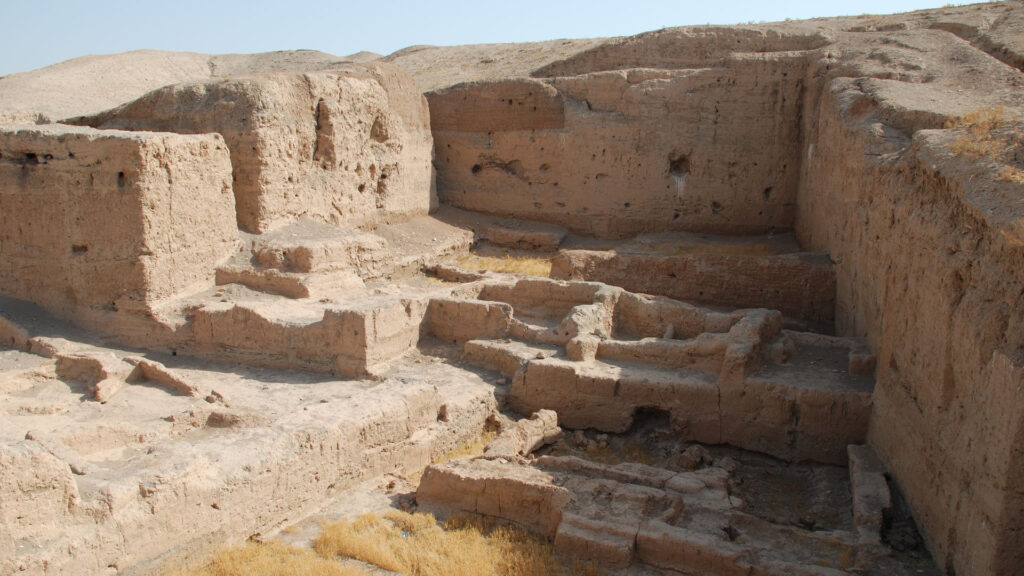By William Sweet, republicEn.org
The Akkadian Empire, the world’s first real empire, collapsed not from war but from a 300-year drought and dust storms. Ancient records and archaeological sediment samples show that farmland was abandoned, trade routes shriveled and cities emptied. The lesson: When nature fails, the economy follows.
Today, we face a similar risk. But this time, it is not confined to one civilization. It threatens the global economy itself.

According to the actuarial analysis group XDI, climate-related shocks could erase over 50% of global GDP between 2070 and 2090 if we continue degrading our environmental base. That is not a projection from activists — it is a warning from risk specialists whose job is to quantify future losses. That includes agriculture, energy, transportation, real estate and finance.
And yet, every year, we erode the foundation of that wealth. We treat topsoil, pollinators, clean water and climate stability as if they were infinite — when, in fact, they are infrastructure. Nature is not simply scenery; it is a supply chain.
We would never allow a publicly traded company to drain its capital reserves and pretend all was well. We would expect them to disclose risk, mitigate exposure and protect long-term assets. Yet, as a global market, we are drawing down the most valuable assets we have — climate stability, productive land, predictable rainfall — without accounting for the cost. That is not free-market stewardship: It is a balance-sheet blind spot.
Florida shows both the danger and the opportunity, ranking among the most economically exposed states in the U.S. to climate-related losses, with the fourth-highest insured property risk globally due to hurricanes, floods and sea level rise. The National Oceanic and Atmospheric Administration projects that by 2050, Florida could see over a two-foot increase in sea level, threatening over $145 billion in coastal real estate.
Yet this very vulnerability has spurred innovation. Local governments are investing in mangrove restoration, elevated infrastructure and stormwater capture — not as acts of environmental charity, but as essential protections for tax bases and insurance markets.
Florida also proves how ecological stewardship can align with energy strategy. The Sunshine State ranks third in the U.S. for total solar generation.
Meanwhile, Florida’s agricultural sector is quietly laying the groundwork for ecological resilience. The state leads the Southeast in regenerative citrus farming, with growers adopting practices like precision irrigation, soil cover management and native pollinator habitat restoration.
University of Florida studies show these efforts can reduce water usage by up to 50%, cut fertilizer runoff by 40% and protect yields during prolonged droughts. These farmers are not environmentalists in name — they are capitalists in practice, defending their productivity by defending their land.
Major investment firms are beginning to notice. BlackRock, the world’s largest asset manager, now classifies climate risk as investment risk. The Swiss Re Institute projects that by mid-century, countries that fail to adapt could see economic contractions of up to 18% of GDP. Munich Re, one of the world’s largest reinsurers, reports climate-related disasters have quadrupled since 1980 — and the financial burden is increasingly falling on taxpayers and policyholders alike. We must not ignore the land that feeds us.

These are not fringe voices. They are the fiduciaries of global capital. The Polynesians who settled Easter Island built a thriving society, famous for the moai statues. But they cut down every last tree — eliminating their ability to build boats, prevent erosion or grow food efficiently. Within generations, the population collapsed. Without trees, their infrastructure — and economy — crumbled.
A well-designed carbon tax is one of the most market aligned solutions available. It does not pick winners or expand bureaucracy. It simply corrects the market signal. Today, pollution is treated as a free externality. A price on carbon done right ensures that those who degrade shared resources pay for the impact — and those who innovate are rewarded. It is, in effect, a tax cut for the responsible.
The truth is simple: Harming nature is harming our bottom line. And the sooner we see nature not as a luxury, but as the backbone of our economic system, the sooner we can correct course.
The classic Maya civilization — known for advanced math, astronomy and urban planning — experienced abrupt decline. Today, scientists know that deforestation, soil erosion and a series of prolonged droughts contributed heavily. Their water reservoirs dried up, agriculture faltered and city states collapsed from within.
Conservative wisdom must make sure that profits come not from what we extract — but from what we preserve.
William Sweet is a volunteer with republicEn.org, a growing group of conservatives who care about climate change. He fosters environmental sustainability by helping craft legislation, promoting solar energy, conducting research on green finance and wildlife conservation, and writing thought pieces on the environment. His work aligns sustainability with economic realism, ensuring that what is good for the planet is also financially beneficial. Banner photo: Damage from Hurricane Nicole in Daytona Beach Shores (iStock image).
Sign up for The Invading Sea newsletter by visiting here. To support The Invading Sea, click here to make a donation. If you are interested in submitting an opinion piece to The Invading Sea, email Editor Nathan Crabbe at nc*****@*au.edu.



